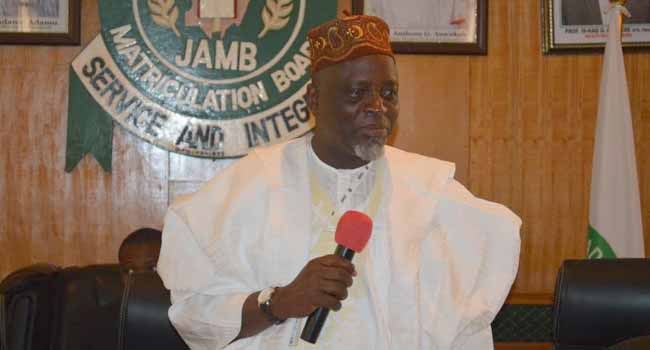The Joint Admissions and Matriculation Board (JAMB) has fixed July 18 for the policy meeting that will determine the Unified Tertiary Matriculation Examination (UTME) cut-off marks for 2024 admissions into tertiary institutions.
The board’s weekly bulletin reports that the meeting, which is to be chaired by Tahir Mamman, the education minister, would have other stakeholders in attendance.
These stakeholders include heads of regulatory agencies such as the National University Commission (NUC), the National Board for Technical Education (NBTE), and the National Council for Colleges of Education (NCCE).
To be present are heads of tertiary institutions in the country and delegates from the National Youth Service Corps (NYSC), among others.
The policy meeting on admissions sets the tone for any particular year’s admission exercise and the formulation of admission guidelines.
It also presents application statistics, performance evaluation on candidates, and the acceptable minimum admissions standards for all tertiary institutions across Nigeria for the given year.
During the exercise, Ishaq Oloyede, the registrar of JAMB, will present reports on the just concluded Unified Tertiary Matriculation Examination (UTME) and the ongoing Direct Entry (DE) applications.
He is also to analyse key performance indicators that could shape the policy directions of the government in the area of admission.
Also, the meeting would apprise stakeholders of the salient issues that cropped up in the previous year’s admission exercise.
In addition, the policy meeting would look at the performance of candidates in the current year’s UTME to determine the year’s minimum admissible score.
The 2024 UTME commenced on April 19 and ended on April 29.
In the previous year, the tertiary education stakeholders agreed on the minimum admission requirement for admission into universities, polytechnics, and colleges of education.
The July 18 meeting would determine the year’s admission requirements while kick-starting the admission process for the current year.
It will discuss unresolved issues emanating from the previous academic year, appraise the compliance of stakeholders with extant advisories, and suggest further amendments where necessary.
Copyright 2024 TheCable. All rights reserved. This material, and other digital content on this website, may not be reproduced, published, broadcast, rewritten or redistributed in whole or in part without prior express written permission from TheCable.
Follow us on twitter @Thecablestyle

